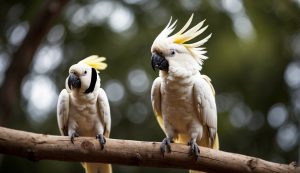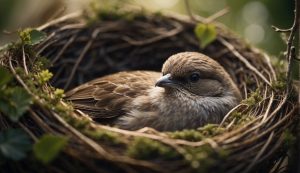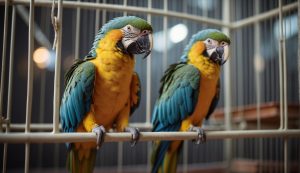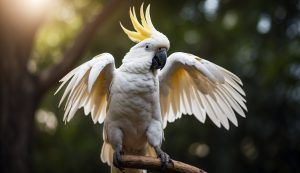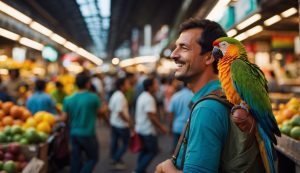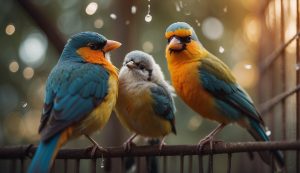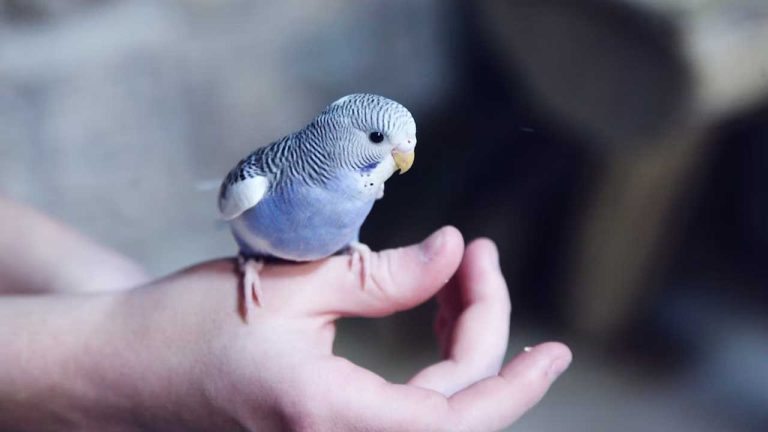What Do Parakeets Like to Eat? – A Friendly Guide
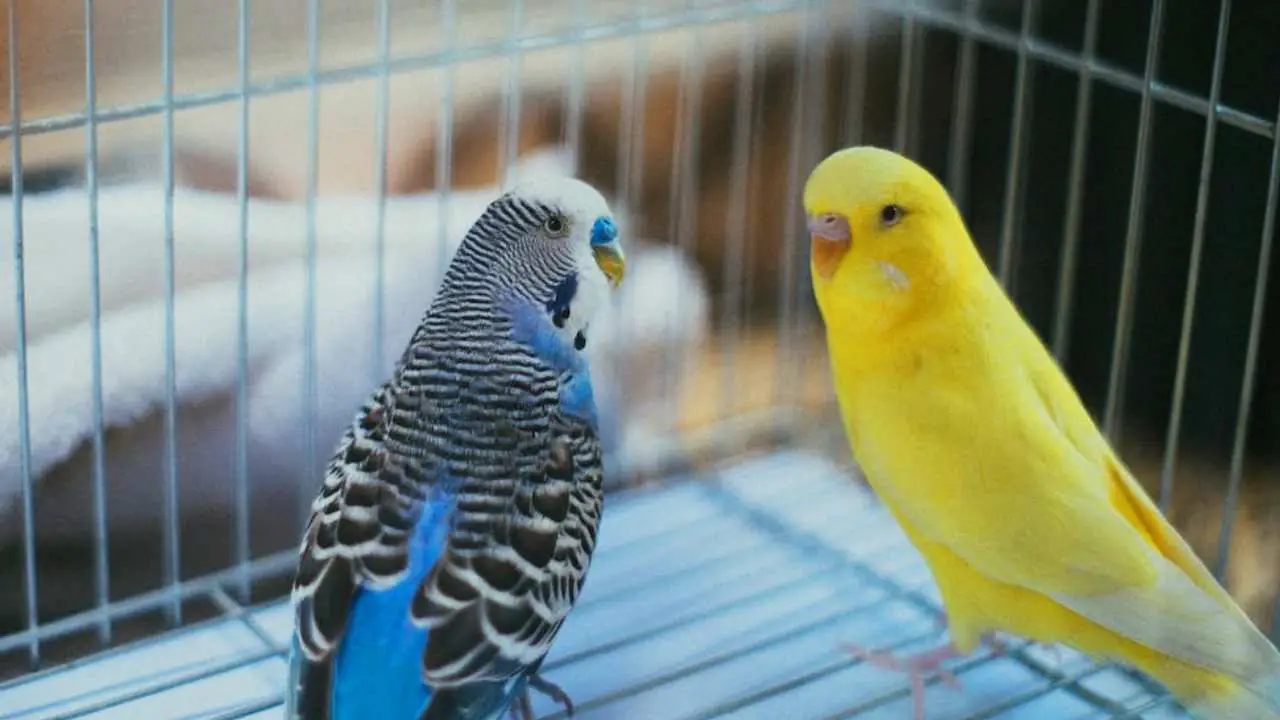
Parakeets, also known as budgies, are colorful and lively birds that make wonderful pets. With their unique personalities and intelligence, it’s no wonder that these feathered friends have stolen the hearts of bird lovers worldwide.
One crucial aspect of taking care of these energetic birds is ensuring they receive a well-rounded and nutritious diet. A proper diet sets the foundation for a healthy, happy parakeet, and understanding their dietary needs is crucial for responsible pet owners.
In the wild, parakeets primarily consume seeds, nuts, fruits, and vegetables, all of which play an essential role in their overall health.
A combination of these food types not only provides fuel for their day-to-day activities but also delivers the essential vitamins and minerals that their bodies require.
When it comes to feeding pet parakeets, many owners choose to offer a mix of dry and sprouting seeds, accompanied by an assortment of fresh fruits and vegetables as add-ons.
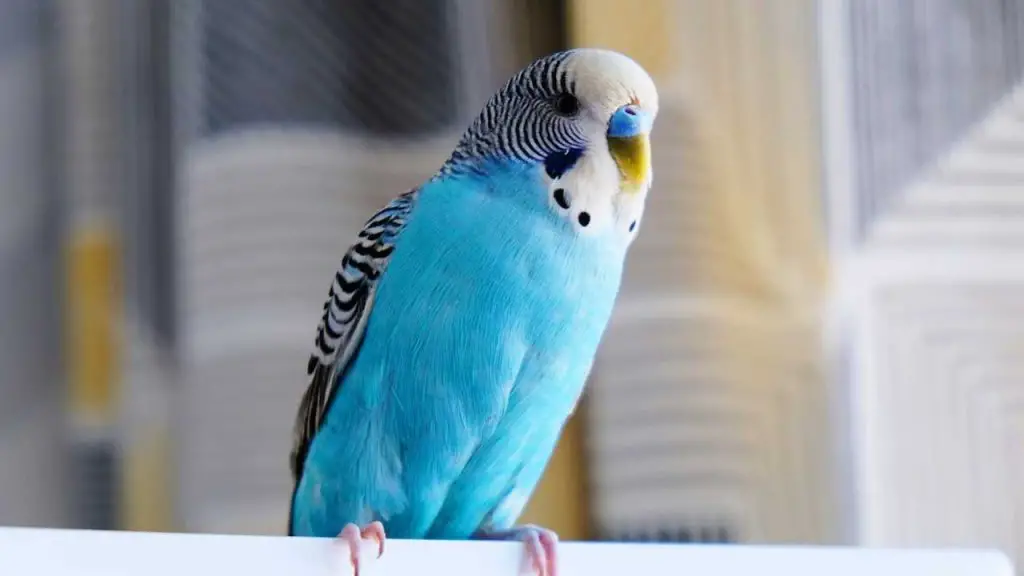
Introducing your parakeet to various foods ensures balance in their diet, positively impacting their health, vitality, and well-being.
This article will delve into detail about the different types of foods that parakeets enjoy and give you some helpful tips to create a wholesome and diverse meal plan for your parakeet.
Table of Contents
What Is The Natural Diet of Parakeets?
Parakeets are small, colorful birds that require a balanced and diverse diet to thrive. This section will explain the main components of a parakeet’s natural diet, which includes seeds, fruits, vegetables, and sprouts.
Seeds
Seeds are a staple in a parakeet’s diet. They provide essential nutrients and energy to keep these active birds healthy. However, it is crucial to note that seeds should not be the only component of their diet, as they do not provide all the necessary nutrients. Some common seeds that parakeets enjoy are:
- Millet
- Canary seed
- Sunflower seeds (in moderation)
Fruits
Fruits make a tasty and healthy addition to a parakeet’s menu. They provide vitamins, minerals, and natural sugars that give these energetic birds the fuel they need. A few examples of fruits that parakeets can enjoy are:
- Apples (without seeds)
- Oranges
- Grapes
- Berries
Remember to wash and thoroughly clean the fruits before feeding them to your parakeets.
Vegetables
Just like humans, parakeets benefit from a variety of vegetables in their diet. Vegetables provide essential nutrients and antioxidants, contributing to a robust immune system and overall health. Some vegetables that can be offered to parakeets are:
- Leafy greens (kale, spinach)
- Broccoli
- Carrots
- Peas
Ensure that any vegetables given to your parakeets are fresh and free from pesticides.
Sprouts
Sprouts are an excellent nutritional addition to a parakeet’s diet. They are a great source of protein, vitamins, and minerals, supporting healthy growth and development. Some commonly sprouted seeds for parakeets include:
- Alfalfa
- Quinoa
- Lentils
- Mung beans
To provide your parakeets with sprouts, simply soak the seeds for a few hours, rinse them, and then allow them to sprout in a clean container. Once sprouted, they can be mixed with other components of your parakeet’s diet.
Things to Supplement Your Parakeet Diet With
Cuttlebone and Mineral Blocks
Parakeets require essential minerals for their overall well-being. One way to provide this is through the use of cuttlebone and mineral blocks. Cuttlebone is a natural source of calcium, which is vital for healthy bones and beak. Mineral blocks offer added nutrition and help with the wear of the parakeet’s beak. Place these items in the cage for easy access, and the parakeets will nibble on them as needed.
Pellets
In addition to a seed-based diet, parakeets can benefit from pelleted food. Pellets offer a complete and balanced diet, as they are specially formulated with all the essential nutrients, vitamins, and minerals that parakeets need. A balanced diet for parakeets consists of 60-70% high-quality pelleted food and 30-40% fruits or vegetables. When choosing a pelleted food, it’s important to look for one specifically formulated for parakeets, as it will be tailored to their nutritional requirements.
- Fruits: Parakeets can eat a variety of fruits such as apples (no seeds), berries, and small amounts of citrus fruits. Be sure to wash and chop the fruits into manageable pieces for your parakeet to enjoy.
- Vegetables: Parakeets also enjoy vegetables such as carrots, peas, broccoli, and leafy greens. As with fruits, wash and cut the vegetables into small pieces.
Remember to always introduce new foods to a parakeet’s diet gradually, and monitor their acceptance and reactions to these additions. Adjust the combination of seeds, pellets, fruits, and vegetables accordingly to ensure optimal health and happiness for the parakeet.
Foods to Avoid
Parakeets require a balanced diet for optimal health. As a responsible bird owner, you must be cautious of what you offer to your feathery friend. In this section, we will discuss the foods that should be avoided, including unhealthy snacks and toxic foods.
Unhealthy Snacks
While your parakeet may be tempted by some human snacks, it’s important to resist sharing them with your little buddy. Parakeets should not consume foods that are high in fat, sodium, or sugars. The following list includes common unhealthy snacks to avoid for your parakeet:
- Cheese
- Chocolate
- Crackers and other man-made biscuits
- Dairy products
- Honey
Always opt for healthier alternatives like fresh fruits and veggies for your parakeet’s treats.
Toxic Foods
Some foods are not just unhealthy but also toxic to parakeets. These can cause severe harm or even be fatal to your pet. Below are some specific toxic foods that you should never give to your parakeet:
- Avocado: Avocados contain a substance called persin, which can cause respiratory problems when ingested by parakeets.
- Onions and Garlic: These can cause digestive upset and contribute to anemia in parakeets.
- Chocolate: This can cause vomiting, diarrhea, tremors, and even death in parakeets.
- Apple seeds and fruit pits: These contain traces of cyanide, which is toxic to parakeets.
- Beans: Many raw beans are toxic to parakeets; it’s best to avoid them entirely.
- Citrus fruits: Grapefruit, lemon, and lime should be avoided for parakeets as they are too acidic.
It’s essential to provide your parakeet with a well-rounded variety of fresh and nutritious foods while avoiding toxic and unhealthy options. If you’re ever unsure about whether a food is safe for your parakeet, consult an avian veterinarian for guidance.
Frequently Asked Questions
What fruits and vegetables are safe for parakeets?
Parakeets can enjoy a variety of fruits and vegetables in their diet. Some popular options include apples, oranges, bananas, strawberries, kiwi, mango, peaches, pears, bell peppers, cucumbers, carrots, spinach, kale, broccoli, and peas.
Always ensure the produce is washed and seeds or pits are removed before feeding your parakeet.
Are there any toxic foods to avoid for parakeets?
Yes, there are some foods that can be harmful or even deadly to parakeets. These include avocado, chocolate, coffee, alcohol, and any foods containing excessive salt, sugar, or artificial additives.
Fruit seeds such as apple, cherry, or apricot seeds should also be avoided as they contain a small amount of cyanide, which is toxic to birds.
What alternatives to seeds can be fed to parakeets?
Pellets are a great alternative to seeds as they offer a balanced diet and help prevent selective eating. It is essential to gradually introduce pellets to your parakeet’s diet to avoid rejection.
As well as pellets, parakeets can also enjoy fresh fruits, vegetables, and occasional treats such as millet sprays or small pieces of whole-grain bread.
Is it safe for parakeets to eat nuts like almonds?
Nuts can be fed to parakeets in moderation as a treat. Almonds and other nuts like walnuts, pecans, and pistachios can be given to parakeets but in small quantities and without added salt.
Nuts are high in fat and can lead to obesity if given too frequently or in large amounts.
Can parakeets consume common household foods like lettuce and apples?
Yes, parakeets can safely eat lettuce and apples as part of their diet. Lettuce, particularly dark, leafy greens like romaine, provides essential nutrients such as vitamins and minerals.
Apples are a good source of fiber and vitamins but should be given without the seeds, which can be toxic to parakeets.
How often should you feed your parakeet fresh produce?
Fresh produce should be offered to your parakeet daily to provide a balanced, nutrient-rich diet. It is essential to ensure that any uneaten fresh food is removed from the cage after around 24 hours to prevent spoilage, which could lead to health issues.
It is also important to monitor your parakeet’s preferences and adjust the amount of fresh food accordingly to minimize waste.

